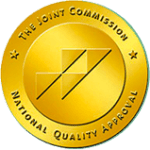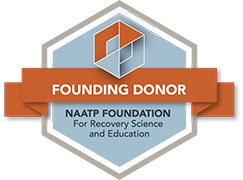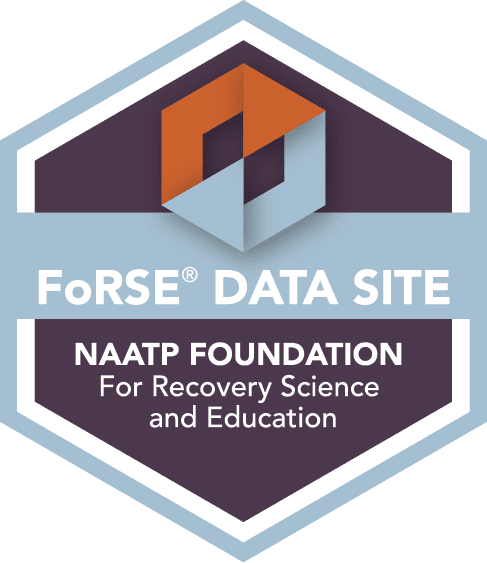High Watch Video Transcript
It all began in 1939 on a farm in Kent, Connecticut. They called her Sister Francis. She took in addicts and alcoholics there, helped those in need and gave them hope. Bill Wilson was the founder of Alcoholics Anonymous. He came to Sister Francis’ farm with Marty Mann, one of AA’s first female members. They fell in love with High Watch Farm, and sister Francis fell in love with AA. She offered to gift her property to them so they could turn High Watch Farm into a retreat for those seeking recovery. And over seven decades later, the work continues as High Watch Farm remains the Hill of Hope.
“The first time I drove up that hill, I just knew this is where I was supposed to be” says Dana Pollack, Lead Clinician. “I’ve been here for over a decade now, and I can’t see myself working any place else.”
“I’ve known since I was thirteen that I wanted to be a social worker who was going to help save people. I had a friend who was removed from his home. His dad was an active alcoholic at that time. I remember saying to my mom, that there was no way that I was ever going to let anybody feel the way that he had felt, and that I would do my best to make sure that he had always known that he was worth something, and that there were people in his life that cared about him.”
The President of High Watch says “Addiction is a very lonely, lonely place. When people are in the midst of their disease, they feel that nobody understands what they’re going through. I think what separates us at High Watch is we do understand what you’re going through. You know, one of the principles that we have at High Watch is ‘you are not alone.’”
“When I got here” says Serena Larson, a former guest, “you know, as I’m sitting there, scared, nervous, crying, there was immediately a warmth from the staff, from the people that worked here.”
“So we work to give a guest a sense of hope at every stage, at every turn” says Dana Pollack. “Our patients are treated with love, kindness, compassion and respect.”
Serena Larson also says “Being a resident, being a guest here at High Watch - you live here, so if you’ve never been in treatment of something like that before, that might sound really scary. But the way that the dormitories are set up here, it’s very family-oriented, it’s very comfortable. You’re with like-minded people. Regardless of age and background, you’re all here for something similar.”
“Guests and staff meet together three times a day for breakfast, lunch and dinner in what we call the barn” says the CEO. “The barn is a large, timber-style building that hosts all of our meals along with some of our AA meetings that we have that are open to the public.”
“The barn is the big building on campus” says Serena Larson. “This is where we all gather, this is where all of our meals are. It’s also where we have some meetings, In the evening every night we see movies there, so it is like the main – the heart of – the campus.”
“The chapel is that place that, there’s this serenity, there’s this energy there” says Dana Pollack. “It grounds people, and it’s comforting.”
“The chapel was originally Sister Francis’ house” says the CEO of High Watch. “Sister Francis lived upstairs and she designated one of the rooms downstairs as the chapel. It was originally called ‘Mother’s House’. Sister Francis was really a mother-like figure to a lot of the guests and patients here at High Watch.”
“It’s a very, very old room which has a long, long over-eighty-year history” says Tony Rice, Board Chairman, “and I walk into this room, and I absolutely know that my recovery is well-centered.”
Serena Larson says “There is something mystical, magical. It’s an amazing place, there’s a lot of history here. It’s a place we come together every day at 11am, hearing a quick 10-15 minute story about recovery, reading something from the big book. Often music’s played, people sing…it’s just a nice way to bring everybody together for 15 to 20 minutes and have a peaceful place. People stay connected to High Watch. There is a nurturing, there’s a sense of belonging, a sense of ‘you’re okay’ and that we’re in this together and you’re going to make it.”
The CEO of High Watch says “So Saturday nights are a special time here at High Watch. High Watch hosts a public dinner every Saturday night. It’s a prime rib dinner. This has been offered for over 75 years. And it’s important for people in recovery, especially our guests that are here, because what it starts to do is bridge the outside AA community to the inpatient community, and it allows people to begin to see that there is hope outside, that they can begin to build their life back; that they can connect with the community – a sober community – that’s outside of High Watch.”
“You know, they’ll say the only way out is through” says Dana. “People have done it. People have been doing it since 1939. We’ve had people who have walked through those doors and are now staff members. And they’re here, and they’re here to share the struggle with you. They’re here to share those ups and downs and to let you know that you can do this.”
A lot of people have had the feeling when they’re driving up the hill to come into High Watch, that they have a feeling of hope, that they have a feeling that they can rebuild their lives. That things are going to get better. High Watch has become known as the hill of hope.”








